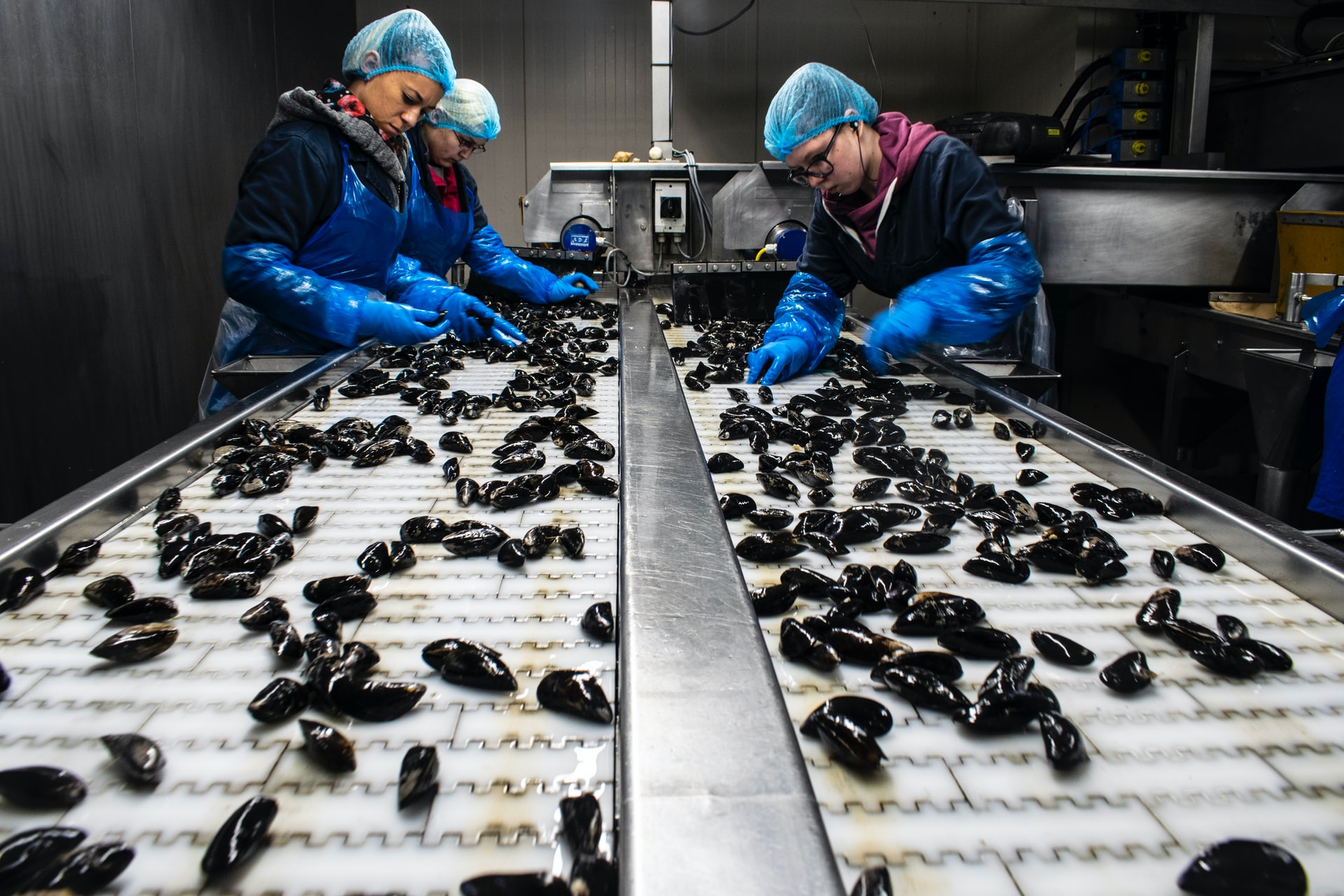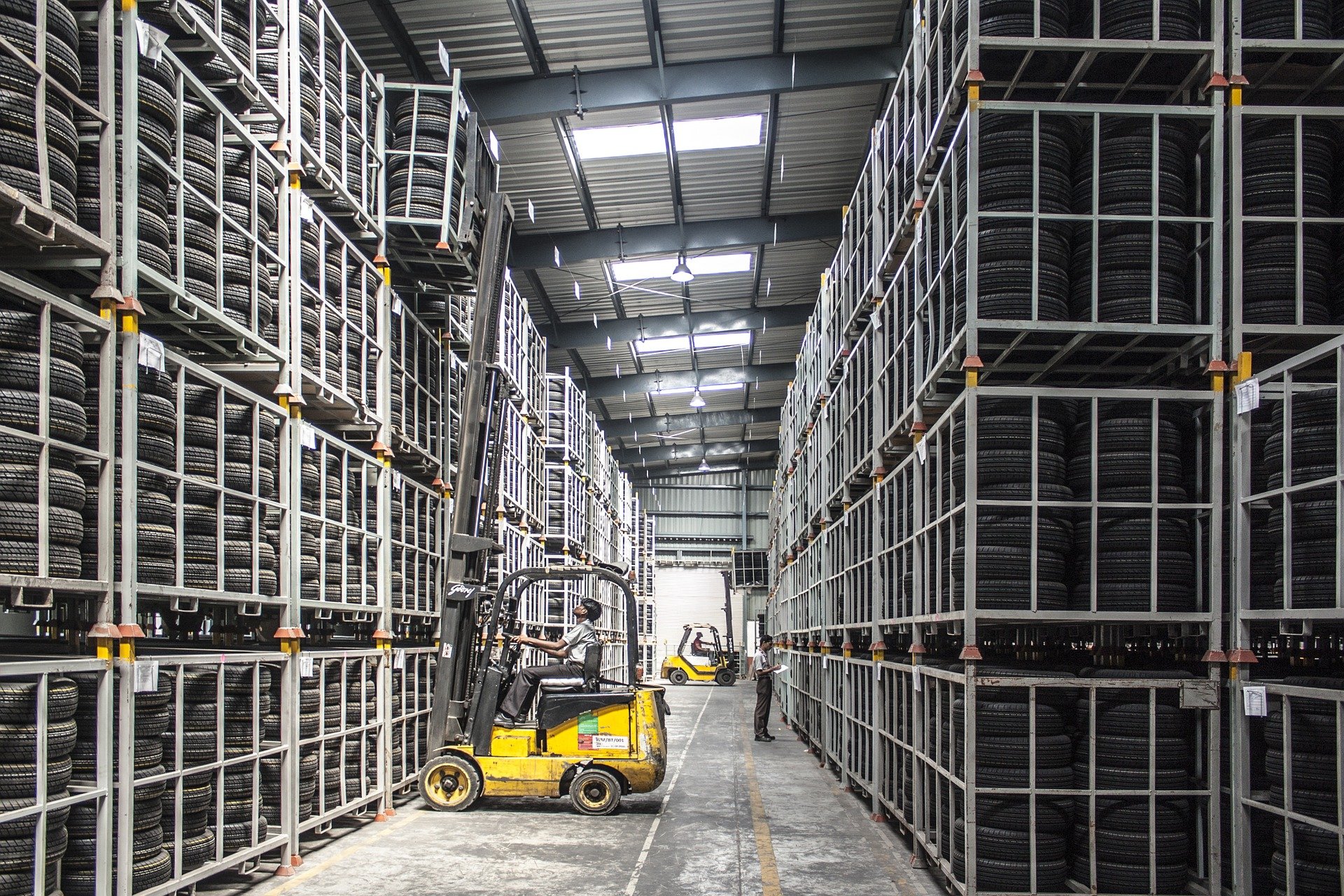For supply chain professionals in your organization to receive the flexibility and agility they need to increase speed, drive down costs, and satisfy customers, there are four critical components your company must possess. These include real-time visibility, predictive insights, prescriptive decision support, and real-time collaborative execution, all of which can be achieved through the implementation of supply chain control tower.
Deploying a network model to achieve real-time, end-to-end visibility
Visibility is the foundation of every control tower capability, with all advanced decision making and responses within the execution window relying upon the quality and timeliness of visibility. Keeping order, shipment, and inventory status updated for all parties to see in real time is critical to success., but this often proves a core challenge for control towers, since highly dynamic supply chains can change at a rate of over 50 changes per second.
Read More
Topics: ERP, Supply Chain, Supply Chain Visibility, Supply Chain Network, Fashion PLM, Infor M3 ERP, Enterprise Software, Supply Chain Operations, WMS, Supply Chain Management
Throughout the pandemic, food and beverage companies have weathered surges in demand, rapid fluctuations in consumer buying habits, and the complexities of the global supply chain. Without complete enterprise-wide visibility or collaboration, shifting gears and adapting to trends in the market can seem insurmountable.
How can you modernize to keep pace with the speed of consumer needs in today’s competitive market? We recently did a webinar with Mark Winter, CFO of My Food Bag, to hear how his company, a leading online meal kit provider in New Zealand, managed to improve business productivity, efficiently manage the growth of its business and navigate the pressures of the pandemic.
Here are some valuable takeaways from the webinar. Watch the on-demand recording if you want to hear more about how My Food Bag deals with special requests from customers for particular food products, or ingredients, how the company manages last-mile delivery, and what they do to get the right balance between supply chain efficiency and sustainability.
Read More
Topics: ERP, Food & Beverage, Supply Chain, Food Technology, CloudSuite Food & Beverage, Infor M3 ERP, Enterprise Software, WMS, Supply Chain Management
Regardless of size or industry, asset-intensive organizations are always looking to do more with less. For a food and beverage manufacturer that means finding ways to extend asset life to minimize costs, improve food and worker safety and reduce waste while performing the right maintenance on the right equipment, at the right moment to avoid downtime.
Some businesses have been making do and getting by with asset management strategies that sell them short, driving up the cost of maintenance labor and materials and increasing the risk that critical assets will be down when they’re most urgently needed. The scene has been shifting over the past several years, with Enterprise Asset Management (EAM) offering greater visibility and sophistication for maintenance operations.
But business rarely sits still for very long. And with the rapid rise of Industry 4.0, it’s essential for asset management to keep up. Maintenance 4.0 is the set of tools and strategies that is helping food and beverage companies optimize operations by deploying the mountains of data now available to keep equipment and production lines in peak operating condition. Infor’s Best Practice Guide, “Why your EAM strategy must evolve to increase food safety,” explains how it works and lays out the five essential components of an Asset Performance Management (APM) platform.
Read More
Topics: ERP, Distribution, Supply Chain, Warehouse Management Systems, Supply Chain Network, Cloud BI, Enterprise Asset Management, Enterprise Software, WMS
To keep up with lofty yet mandatory customer expectations, your supply chain can’t afford to stop investing in technology that improves processes, connects business partners and IoT data, and uses machine learning algorithms to improve business outcomes. If the people tasked with running your supply chain are relying on poorly built or outdated systems filled with data quality issues, then they need new technology solutions and strategies to overcome these shortcomings to create true value.
As you strive to balance cost while simultaneously improve your customer service, you are no doubt confronting issues that require better collaboration amongst your group as well as the numerous companies you interact with daily. The days of each department or company working on an island while hoping groups further downstream can correct any mistakes are long gone.
Nowadays, those of us in the supply chain space realize the need for ongoing collaboration with everyone who touches our supply chain. This can take the form of sharing data around forecasts, inventory positions, capacity plans, order status (both at rest and in-transit), as well as visibility into shipments.
Read More
Topics: ERP, Manufacturing, Distribution, Rentals & Equipment, Supply Chain, Fashion & Apparel, Infor M3 ERP, Enterprise Software, Retail Supply Chain, WMS, Supply Chain Management
As the remote work revolution sweeps the globe, contrarians are quick to point out that certain industries and positions may not be realistic candidates for working from home. Jobs in hospitality are frequently pointed to as examples of roles that require a physical presence – after all, that bed will not make itself. But forward-thinking organizations are using this crisis as the impetus to think creatively about what is and is not needed on-site.
Read More
Topics: ERP, Fashion & Retail, Supply Chain, Fashion PLM, Cloudsuite Fashion & Apparel, Infor M3 ERP, Enterprise Software, WMS, Supply Chain Management
Who is best suited to be in a remote work setting?
The grand remote work experiment we have all participated in over the last few months has resulted in a renewed interest in the concept becoming a regular component of the corporate landscape. And while enthusiasm for the approach has grown considerably, abandoning the physical office may not be attractive to everyone. In fact, some people have been quite vocal in their call for a return to the workplace, as they complain about their increased workload, lack of social interaction, constant parade of exhausting Zoom calls and inability to quickly (and clearly) communicate with colleagues. So how can we tell the difference between an admirer and an adversary of this new model of work?
Read More
Topics: ERP, Fashion & Retail, Supply Chain, Fashion PLM, Cloudsuite Fashion & Apparel, Infor M3 ERP, Enterprise Software, WMS, Supply Chain Management
Competitive supply chains must enable a new level of coordinated performance that creates a high-fidelity picture of in-process flows across your extended network. Building the continuous supply chain supports contextual deviations, conveys alerts and drives continuous planning via sense & respond capabilities.
Optimizing multi-party business processes
Supply chains are complex networks where over 80% of the data and processes sits within partner systems. To see and act on the latest picture of your supply chain, your company needs that data from each of your partners, but the problem is most companies rely solely on an enterprise-centric approach to solve a multi-enterprise problem.
The only way to overcome those limitations is to adopt a "network approach." Connecting all partners to shared processes, data and metrics managed within a single platform creates a single version of truth for all parties. This allows supply chains to eliminate the data silos and inherent latency in order to reduce the root causes of friction, variability and costs in today’s supply chains, both internally and externally.
Read More
Topics: ERP, Manufacturing, Distribution, Rentals & Equipment, Supply Chain, Fashion & Apparel, Infor M3 ERP, Enterprise Software, Retail Supply Chain, WMS, Supply Chain Management
Many wholesale distributors tend to view warehouse operations as a cost center due to labor, equipment, physical inventory, and real estate investments. However, with business models rapidly changing through e-commerce, omni-channel engagement, and innovative services, warehouse operations that are re-imagined through investments in technology can empower a company to gain a competitive advantage. Streamlining and automating processes across the warehouse improve customer and employee experiences and inspire customer loyalty.
A recent article featured in Forbes highlighted survey-based research on practice, priority, and expectation trends of warehouse executives. Respondents chose a warehouse management system (WMS) as their highest priority for technology investment with 96 percent of survey participants noting that the warehouse automation value proposition was expected to increase over the next 3 years. Survey findings indicated that operational changes like labor costs, labor shortages, and increased throughput requirements were all primary factors for companies looking to automation.
Read More
Topics: ERP, Supply Chain, Warehouse Management Systems, Product Lifecycle Management, Infor M3 ERP, Enterprise Software, WMS, Supply Chain Management
Manufacturers in the food and beverage industry are increasingly turning to mergers and acquisitions to keep pace with consumer demands. In an era where speed is critical, many companies seem to find it to be faster and easier to form a partnership or make an acquisition, rather than invest in R&D or develop their own new products and brands from the ground-up.
The factors driving the trend
As economic recovery gains momentum and fuels a robust growth period in the food and beverage industry, expansion hungry manufacturers are eager to take advantage of new trends and the growing consumer obsession with the quality of the food they eat. Healthy snacks, plant proteins, clean labels, exotic taste experiences, neuro-nutrition, and socially mindful companies are all top-of-mind topics for today’s shoppers, especially millennials. Consumers now prioritize locally grown foods, sustainable farming, and organic and non-GMO foods, and are quite willing to read labels and research the origins of their meals, whether it be prepared in a four-star vegan restaurant or picked off the shelf of a corner convenience mart.
Read More
Topics: ERP, Food & Beverage, Supply Chain, Food Technology, CloudSuite Food & Beverage, Infor M3 ERP, Enterprise Software, WMS, Supply Chain Management
Food and beverage manufacturers rely on their R&D and marketing departments to develop new product ideas that capture market share before the competition can catch up. These departments leverage information available in their business systems to help them analyze trends ranging from buying patterns to cost fluctuations. The trouble is, when R&D and marketing rely on business systems that exist in silos— as is often the case with today’s food and beverage manufacturers opportunities are missed, product development is too slow, and costs creep higher. But when a manufacturer understands that every part of the organization has a stake in the product innovation process, and ensures that all the parts are connected, the organization is better positioned to deliver successful, innovative products quickly.
This white paper discusses a number of considerations that food and beverage manufacturers should make when examining ways to accelerate product innovation. This paper also details how digital technology can be the enabler of this acceleration.
Read More
Topics: ERP, Food & Beverage, Supply Chain, Food Technology, CloudSuite Food & Beverage, Infor M3 ERP, Enterprise Software, WMS, Supply Chain Management










.jpg)
